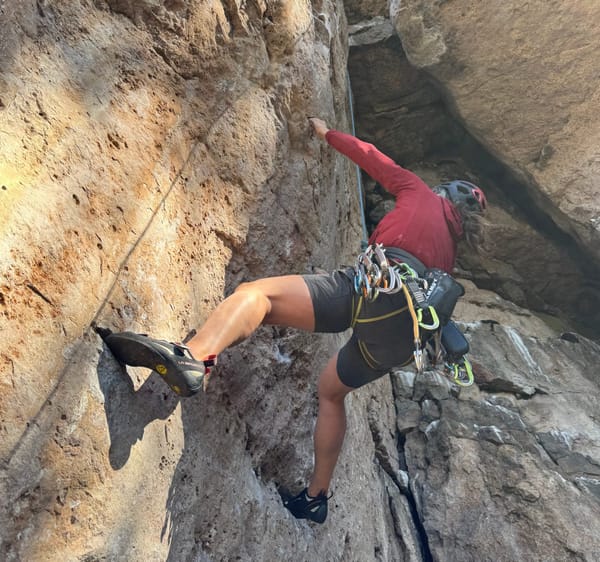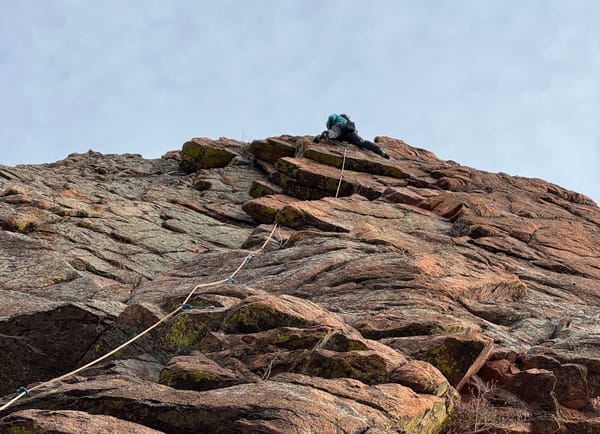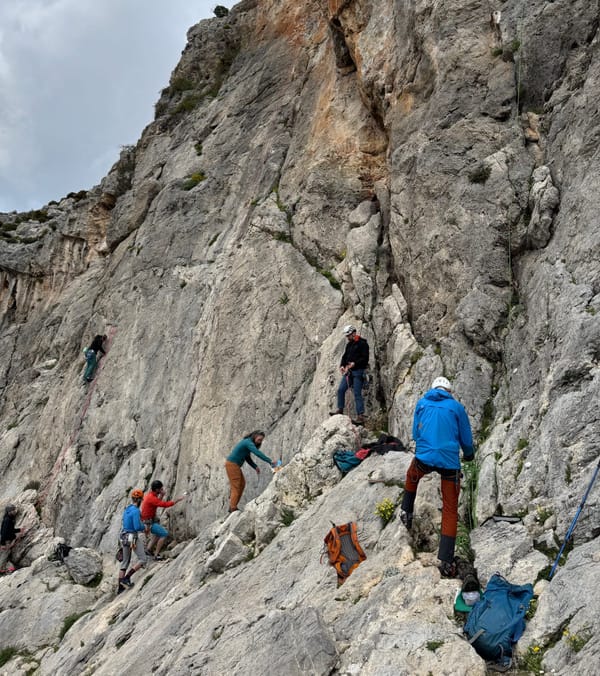The Founder's Ascent: What Climbing Can Teach You About Building a Startup
Building a startup and climbing a rock face both demand an uncomfortable blend of vision, problem-solving, risk, and perseverance. You can’t fake it, you can’t skip steps, and you can’t rely on someone else to pull you up. You have to climb your own route.

Discover how lessons from the wall can shape your approach to resilience, focus, and execution in your entrepreneurial journey.
When you’re hanging 100 feet off a wall with nothing but your fingertips keeping you from falling, your priorities become very clear. You stop thinking about what other climbers are doing, how impressive the route looks, or what you’re going to say at the top. You focus entirely on the next move and that, in many ways, is the essence of entrepreneurship.
Building a startup and climbing a rock face both demand an uncomfortable blend of vision, problem-solving, risk, and perseverance. You can’t fake it, you can’t skip steps, and you can’t rely on someone else to pull you up. You have to climb your own route.
Here are the lessons I’ve learned from climbing that every startup founder should take to heart.
1. Fear Is Just the First Move
The first step of any climb, or any startup, is often the hardest. You stare up at the wall, your mind already calculating every risk. What if I slip? What if I’m not strong enough? What if this idea fails?
The truth is, every founder feels that same hesitation before the first move. Fear disguises itself as logic, telling you to wait for a better time, more funding, or clearer visibility of the “top.” But like a climber standing at the base of a route, you’ll never see every hold until you start climbing.
The secret isn’t to eliminate fear, it’s to move with it. Every successful ascent begins with uncertainty. You trust your instincts, take the first hold, and realize the wall feels different than it looked from below. That first move builds confidence. The second builds momentum. Before you know it, you’re too focused on the climb to worry about falling.
Starting your company is the same. The best founders don’t wait until they’re fearless. They simply start climbing before fear talks them out of it.
2. Falls Are Feedback, Not Failure
Every climber falls. The key is learning how to fall safely and get back on the wall.
In startups, failure is inevitable, but it’s also your fastest teacher. A failed launch, a quiet market, or a deal that dies late in the cycle isn’t the end. It’s information. Like checking the chalk on a hold that didn’t work, it tells you what to try differently next time.
The founders who win aren’t the ones who never fall. They’re the ones who fall often and then keep climbing anyway.
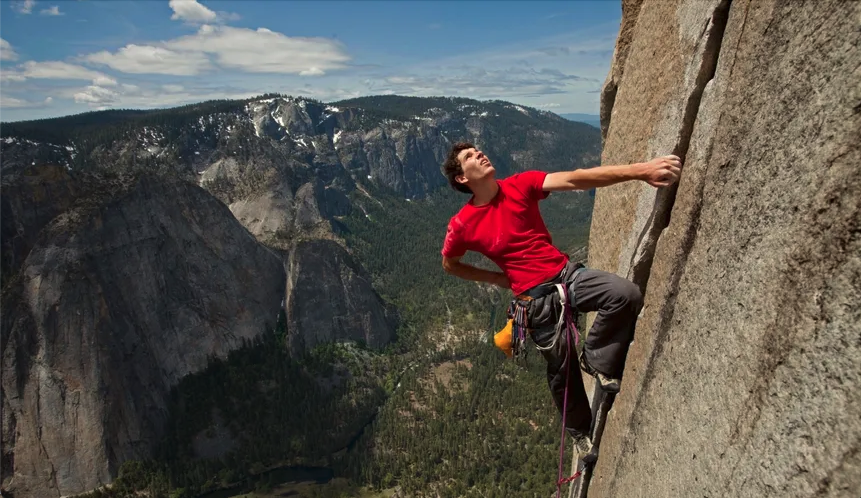
"Climbing is mostly failing. You know you're always trying things that are just past your limit and you're always failing. And so everyday you mostly fail". - Alex Honnold
3. Build a Belay System (Your Support Network)
Climbing alone is reckless. Climbing with a good belayer makes anything possible. Founders are the same. You need a team and ideally, a strong partner. If you specialize in finance or go-to-market, partner with a strong technical co-founder. If you’re an engineer then partner with a product design specialist. Find someone that compliments you to create a great team.
Your belay system is your team, mentors, and early believers, the people who keep tension on the rope when you take a risk. You don’t have to have all the answers. You just have to surround yourself with people who keep you safe enough to push harder.
No startup scales in isolation. Every founder needs someone holding the rope.
4. Trust Your Beta, But Adapt Mid-Route
“Beta” in climbing means your plan, the sequence of moves you think will get you to the top. But the wall always feels different once you’re on it, so don’t be afraid to adjust or pivot. There is always another way up and sometimes, a better way.
Likewise, your startup plan is just a hypothesis. Your market, users, and competition will shift under your fingertips. When that happens, you have to pivot gracefully, not panic. The climbers who insist on following bad beta usually fall. The ones who adapt mid-move find new holds and make progress others didn’t see.
5. Manage Your Pump (Energy and Focus)
You’ll often hear the screams of “take” echoing off of canyon walls. Every climber knows exactly what that means. In climbing, “pump” is when your forearms fill with lactic acid and you can barely hold on. The only way to fight it is to rest, shake it out, and breathe.
Founders burn out for the same reason, over-gripping the business. You can’t sprint every pitch. You have to find rest stances, delegate, and recover or you’ll peel off the wall long before the summit.
Sustainable founders learn to manage energy, not just time.
6. Celebrate Every Anchor Point
Climbers celebrate when they clip a bolt, not just when they top out. Each anchor is progress, and it keeps you alive.
In startups, your “anchors” might be a beta release, your first paying customer, or your first investor check. These moments matter. They’re how you stay motivated during long vertical stretches with no end in sight.
Celebrate them. They’re the small victories that make the summit possible.
7. The View Is Worth the Effort
There’s a moment on every climb when you pull over the edge and you’re exhausted but elated. You look down at the route you just climbed , the fear, the uncertainty, the moves you didn’t think you could make, and it all makes sense.
Founding a company is the same. The grind, the self-doubt, the sleepless nights all lead to a perspective you can’t get any other way. You see how far you’ve come, and you realize the climb itself was the point all along.
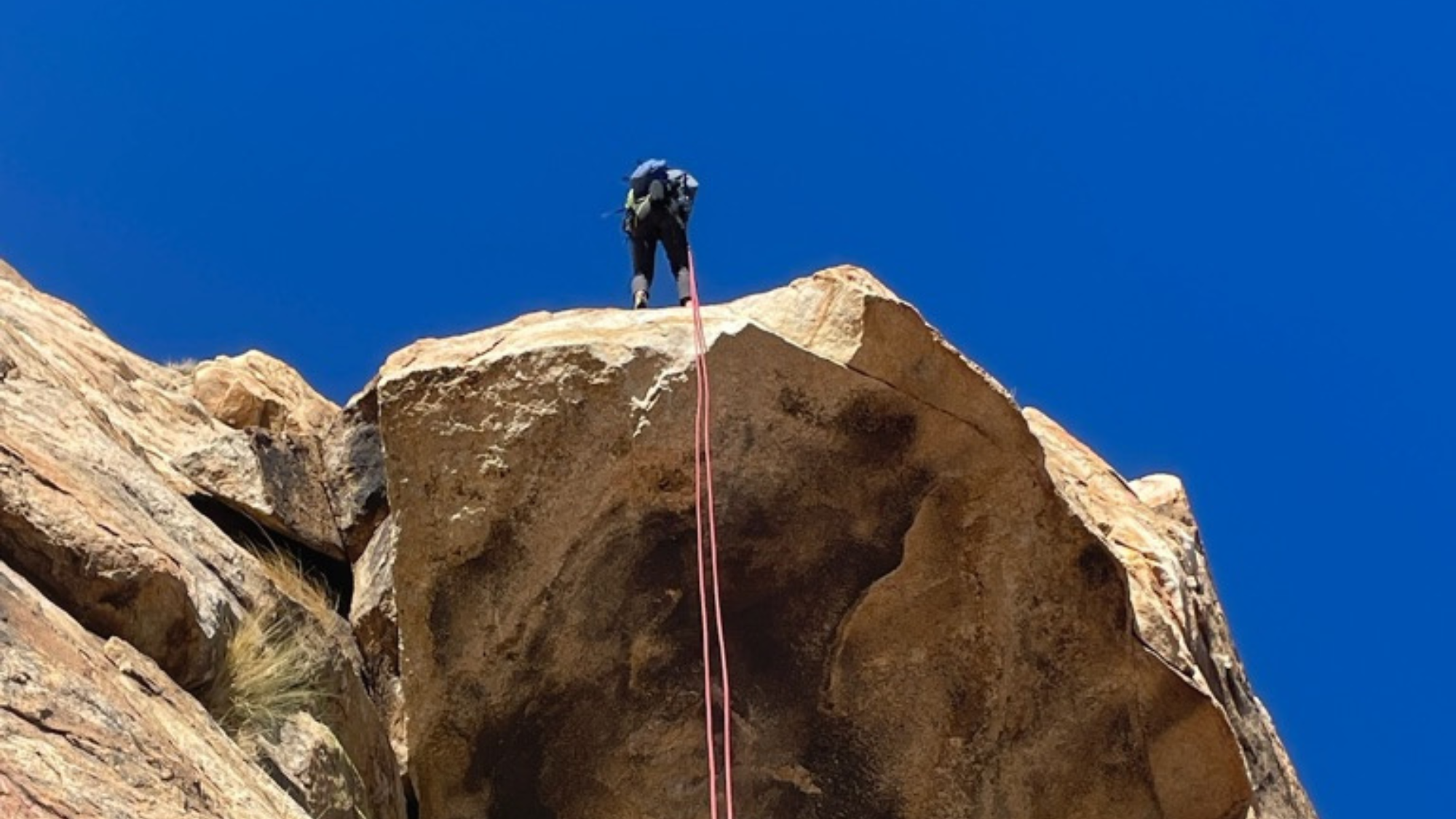
Final Thoughts
Rock climbing doesn’t just build strength. It builds clarity, patience, and resilience, which are the same traits every founder needs to survive the startup journey. Most importantly it teaches you how to manage and overcome fear. Fear of the unknown. Fear of failing. You learn to embrace the fear because fear teaches the most valuable lessons on the journey.
So if you’re a founder staring up at your own impossible wall, grab some shoes, tie in, and start climbing. You might be surprised how much the rock teaches you about building something real.


